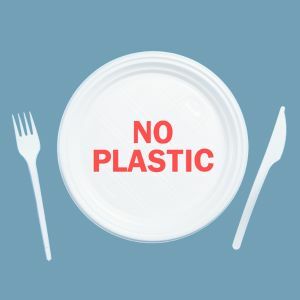Plastic Ban Phase 2: What Hospitality Businesses Need to Know
As of 2021, New Zealand has implemented a three-phase plan to ban single-use plastic products. The first phase has already been put into effect, and now we are approaching phase 2. Find out what you need to know about the upcoming ban.
Why the Ban is Happening
The plastic ban is happening for a number of reasons. Single-use plastic products have a significant negative impact on the environment. These products can take hundreds of years to break down and often end up in our oceans and waterways, harming marine life and contributing to pollution. By banning these products, we can reduce our environmental footprint and protect our planet for future generations.
When Phase 2 is going to be in effect
Phase 2 of the plastic ban will be implemented in New Zealand from 1st July 2023. This means that hospitality businesses have need to start to transition away from the use of single-use plastic products.
What Plastic Products are Affected
The products that will be affected by phase 2 of the plastic ban include:
- Single-use plastic straws
- Single-use plastic cutlery
- Single-use plastic tableware products such as plates and bowls (plastic bowls that are part of a container with a lid are not included)
- Plastic produce labels
- Single use plastic produce bags
Bio-plastic (compostable or biodegradable plastic) products made from PLA (compostable or biodegradable plastic) are also included in this ban.
What Alternatives are Available
If you work in hospitality, it's important to start planning for the ban and sourcing alternative products that are more environmentally friendly. Here are some examples of alternatives:
- Paper straws

- Compostable cutlery made from materials like wood or bamboo
- Biodegradable plates and bowls made from materials like sugarcane, kraft board or corn starch
- Reusable containers for takeaway food
- Reusable bags or paper bags
It's worth noting that while these alternatives may be slightly more expensive, they can help to reduce your business's environmental impact and show your commitment to sustainability.
Conclusion
The plastic ban is an important step towards reducing our environmental impact and protecting our planet. If you start to implement these changes now, then when 1st July 2023 comes around you'll have a smooth transition. By sourcing alternative products and showing your commitment to sustainability, you can make a positive difference and help to create a more sustainable future for all.
If you are looking for suitable alternatives get in touch and we can help with various solutions.
https://www.insinc.co.nz/blog/Types_Of_Recyclable_Plastic_Packaging.html
Posted: Friday 14 April 2023




